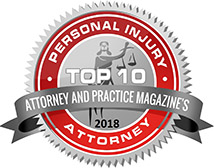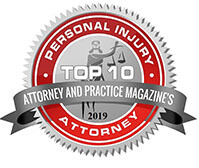Advocates for individual rights might someday call 2017 The Year of Reversal for an unprecedented number of attacks on America’s civil justice system. Pick your poison for examples, from the rollback of restrictions on forced arbitration to passage of legislation that will weaken protections against medical malpractice and nursing home abuse to a slew of proposed “tort reform” measures. At the root of all of these initiatives is corporate profits rather than the safety and legal rights of all Americans. Here’s a closer look.
Forced Arbitration Is Forced Injustice
Forced arbitration clauses, which are now used in a wide range of product, service and employment contracts, prevent a wronged party from bringing a case to court. Instead, the dispute must be settled in secret arbitrations, usually by an arbitrator chosen by the defendant. These clauses often ban class-action lawsuits as well, which are used by thousands of consumers to hold a major company accountable for illegal or unscrupulous behavior. Think Wells Fargo charging millions of customers for accounts they didn’t open, for example. Or the recent Equifax data breach that exposed 143 million people to identify theft and fraud.
Following a comprehensive, multiyear study, the Consumer Financial Protection Bureau (CFPB) issued a rule banning financial institutions like credit card companies and banks from adding forced arbitration clauses to customer contracts. However, in October the Senate voted to overturn this rule, giving big financial corporations the upper hand when customers are ripped off.
Forced arbitration clauses buried in employment contracts also keep employees from suing in some instances for discrimination, sexual assault and harassment, and workplace safety concerns. An executive order called the Fair Pay and Safe Workplaces rule prohibited these clauses in federal contracts. But in March this rule was eliminated, compromising workplace protections and denying 28 million American workers their day in court if wronged on the job.
Medical Malpractice Caps Penalize Injured Patients and Families
An estimated 200,000 to 400,000 people die each year from preventable medical errors. Patients are injured or killed by mistakes at hospitals, clinics, pharmacies and nursing homes or by faulty medical devices. Many victims of medical malpractice have little choice but to take those responsible to court to receive some semblance of justice. But a bill introduced in the U.S. House of Representatives was passed earlier this year that will cap medical malpractice damages at $250,000. That’s a slap in the face for those who have suffered extreme trauma or loss, and makes it clear that some in Congress only intend to protect insurance companies and negligent healthcare providers instead of vulnerable injured people.
“Tort Reform” Will Delay and Deny Justice
Several other attacks on civil justice were launched this past year under the guise of “tort reform,” a phrase used by the U.S. Chamber and its corporate allies to justify measures that would curtail access to the courts and reduce compensation to accident victims. One such bill, H.R. 725, would allow corporate defendants to move cases from qualified state courts into overburdened federal courts, resulting in delays and increased costs to plaintiffs and taxpayers.
Another bill, H.R. 985, will “shield powerful corporations from being held accountable from scamming, injuring and discriminating against Americans” by severely limiting the ability of consumers and workers to join together in class action suits. One part of this bill even forces asbestos victims to add their private information to publicly accessible databases, furthering their victimization and making them vulnerable to identity theft and online trolls.
Both of these anti-safety, anti-consumer bills passed the House and are now before the Senate.









